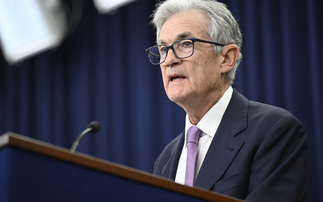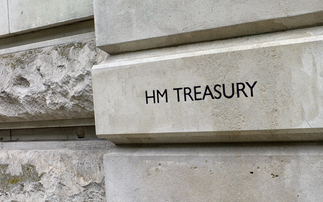The earlier than expected appointment of Theresa May as Prime Minister is an important step in restoring political stability with a semblance of a plan. Nothing weighs more on confidence than lingering uncertainty, writes Rohini Rathour, retired partner at Sarasin & Partners.
An EU national living in the UK is on the verge of buying a house but withdraws at the last minute because he is no longer certain he will be allowed to legally live and work in the UK.
A business that was looking to hire more staff to help with expansion plans is now putting those plans on ice. Business has suddenly slowed down and hiring now seems premature.
Workers in all kinds of jobs are no longer feeling secure - nothing like this has happened in a while. They are the walking unmotivated. They now look at neighbours, colleagues and customers trying to work out if they are "remainers" or "leavers".
People all around the country are distracted. They are spending more time on various social media sites hoping/expecting something to emerge that gives them the news they are waiting to hear.
The country is divided. Each side of the referendum is finding reasons to become ever more entrenched into their way of thinking. Even the BBC Parliament channel is now deemed as interesting viewing.
A referendum that is giving democracy a bad name
Foreign investors looking to invest in UK manufacturing or infrastructure decide to wait and see. They are not going to commit money to a long-term project when there is so much political and regulatory uncertainty.
The currency has continued to bear the brunt of the political impasse but the optimists are saying that is good new for exports. Yes it is. But only if their input costs have been unaffected by the weaker pound, and dare I say, there is still a thriving export market. Don't forget a lot of our trade is done under the umbrella of the EU.
We are a nation that relies heavily on financial services. Despite the recent growth in manufacturing, the service sector still accounts for over 80% of the nation's GDP.
Service industries typically have lower upfront capital costs, greater variable costs (typically labour) and in some cases thanks to technology, greater geographic mobility. And they enjoy an easier exit should the business environment turn persistently nasty.
Contrarian Investor: Brexit result is 'populist anger' at work
Meanwhile, the political landscape is shifting at a pace even journalists who thrive on news are lamenting about. No one is really taking responsibility. Recriminations, resignations and new revelations are the order of the day.
Uncertainty is the worst kind of risk to price by markets. Simply because it is, in Rumsfeld speak, an unknown-unknown. Widespread and lingering uncertainty is inimical to stable economic growth. It is the slow poison that causes a seeping numbness leading to paralysis of the economy.
The suspension of trading, on the back of investors rushing for the exit, on an ever-growing list of real estate funds that have their share of illiquid commercial property may be a sign of things to come.
The real economy is full of "illiquid assets"; those that need a two-way functioning market to find a fair price. We only have to look back to the credit crisis to remind ourselves of what happens when markets become dislocated and there is a buyers' strike.
We must now hope that the new government comes up with a workable plan to extricate Britain out of the EU. Providing business and the people who live and work in the UK with greater certainty is paramount.
Without it, Brexiters may have just chosen to make UK the next Japan.













